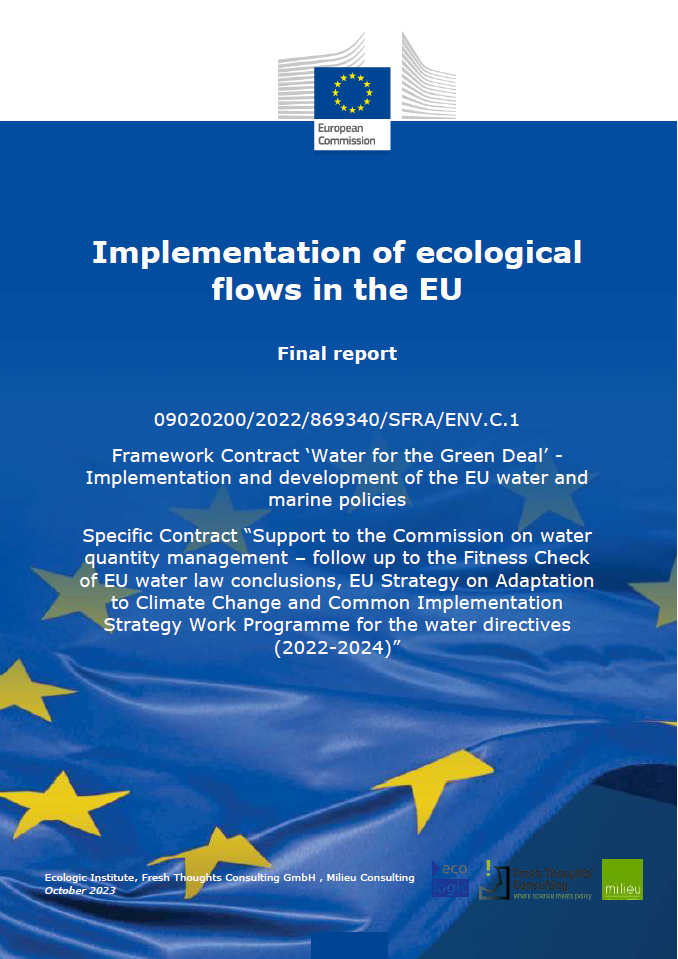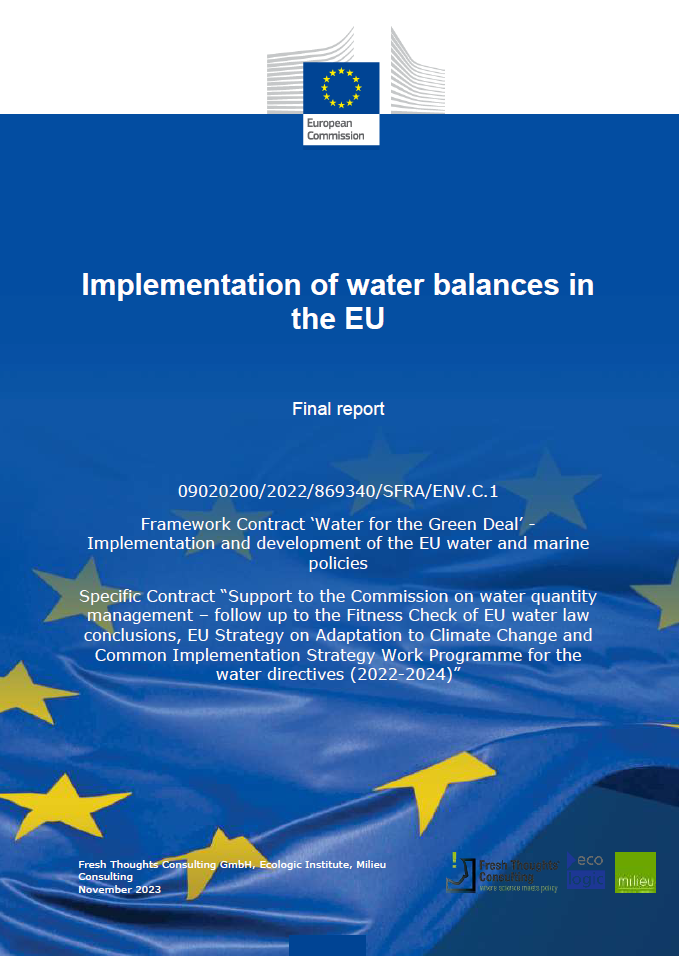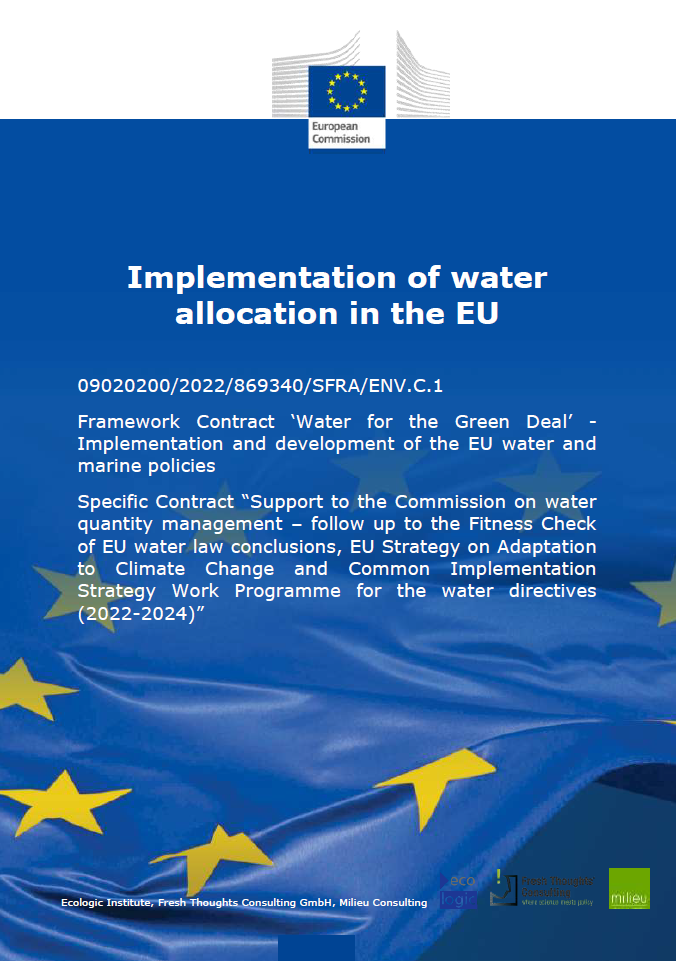Implementation of E-flows in the EU
- Publication
- Citation
Kampa & Schmidt (2023): Implementation of e-flows in the EU. Developed under the Framework Contract ‘Water for the Green Deal’ - Implementation and development of the EU water and marine policies (09020200/2022/869340/SFRA/ENV.C.1). Specific Contract “Support to the Commission on water quantity management – follow up to the Fitness Check of EU water law conclusions, EU Strategy on Adaptation to Climate Change and Common Implementation Strategy Work Programme for the water directives (2022-2024)”
The establishment and implementation of e-flows is key for achieving good ecological status as required by the EU Water Framework Directive (WFD) both in water quantity and water quality terms. In 2015, a guidance document was developed under the Common Implementation Strategy (CIS) for the WFD, to provide an EU definition of ecological flows and a common understanding of how they should be calculated. This report reviews progress in implementing e-flows and in addressing implementation challenges. It elaborates the main challenges faced by water management institutions in implementing e-flows in EU Member States, presents country progress in developing suitable practices and presents relevant implementation examples.
The study shows mixed progress in the Member States. Enforcement of and compliance with e-flows remains a challenge for many of them, in particular in the areas of monitoring gaps and developing fining systems when limits of permits are not respected. In addition, large uncertainties in both hydrological and biological regimes make it difficult to establish direct connections between the need to implement e-flows and changes in ecological status, and pose a challenge to an adaptive approach for e-flows implementation.
Key recommendations of the report include, among others:
- Improve the legal regime and policy basis for implementing e-flows, including the consideration of climate change projections.
- Establish processes to make e-flows and their role in water use policy more widely known and accepted by different stakeholders, including water users and relevant competent administrations (e.g., flood management authorities).
- Elaborate and address differences in the implementation of e-flows for natural water bodies and HMWBs as well as relevant implementation strategies.
- Use available financial support tools to reduce trade-offs between the implementation of e-flows and economic water uses (e.g. energy and food production); share experiences in dealing with opposition from water users and on the use of relevant funding mechanisms at country level.
- EU financing instruments should be more explicit on their requirements to respect the WFD, including reference to e-flows.
- Improve the evaluation of ecological benefits of e-flows and ecosystem services; Exchange information about the progress on relevant pilot work and studies on the description of ecological benefits and on thresholds between increasing ecological benefits and decreasing economic benefits of water users (trade-offs in e-flow implementation).
- Improve mechanisms for more effective enforcement of e-flows (including compliance monitoring systems for different water uses and penalties/fines).
- Further exchange of information on Member States approaches concerning the implementation of e-flows during drought events (e.g., prioritization methods and applied restrictions).
- Integrate e-flows into water allocation schemes, for example concerning the priority of e-flows and water uses under water stress and how to allocate water for environmental needs under climate change.
- Intensify communication with stakeholders and citizens to update them on changing water conditions and the importance of e-flows.
To help address ongoing challenges faced by Member States, these topics could soon be areas of work for the Ad-hoc Working Group on Water Scarcity and Droughts.






